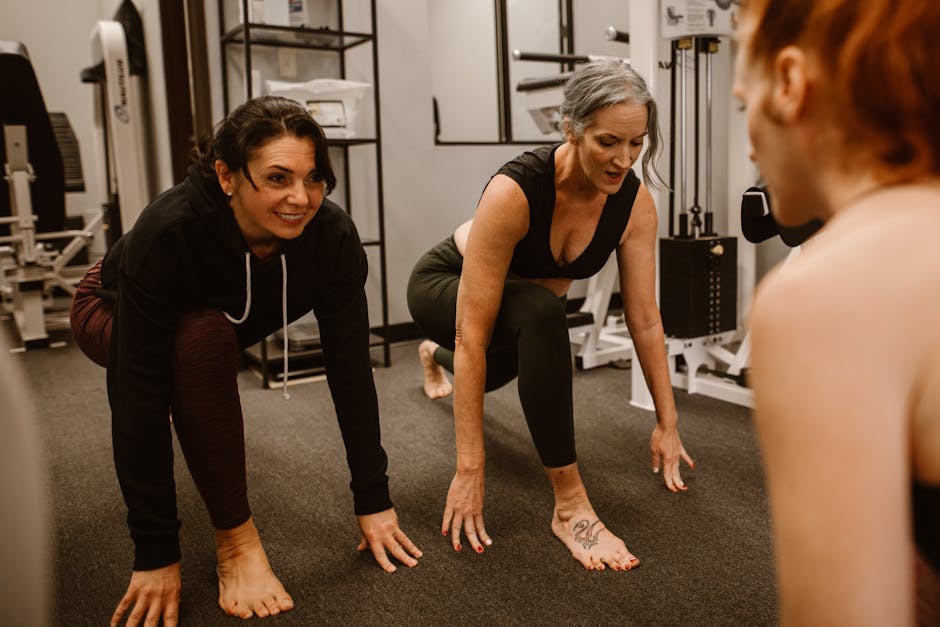Nutrition Basics Women Actually Need to Know
Understanding how to fuel your body isn’t about restrictive diets or trendy superfoods. It’s about the right balance of nutrients that support energy, mood, and long-term health. Here’s a clear, no-fluff breakdown to help you build a solid foundation.
Macronutrients Made Simple
Macronutrients are the primary nutrients your body needs in large amounts to function well:
- Protein: Essential for building and repairing tissues. It also supports immune health and helps you feel full longer. Sources include poultry, fish, tofu, legumes, and dairy.
- Fat: Don’t skip it. Healthy fats support hormone health, brain function, and cell structure. Choose foods like avocados, nuts, seeds, and olive oil.
- Carbohydrates: Your body’s main energy source. Opt for complex carbs like whole grains, sweet potatoes, and fruits rather than highly processed foods.
The Micronutrients Women Need More
Certain nutrients are especially important for women due to menstruation, bone health, and reproductive needs. Don’t overlook these key players:
- Iron: Needed to prevent fatigue and support red blood cell production. Found in lean meats, spinach, lentils, and fortified cereals.
- Calcium: Vital for strong bones and preventing osteoporosis. Get it from dairy products, leafy greens, and fortified plant milks.
- Folate (Vitamin B9): Supports cell function and is crucial during pregnancy. Load up on leafy greens, citrus fruits, and beans.
- Vitamin D, Magnesium, and B12: Often overlooked but critical for mood regulation, immune health, and energy. Keep your levels in check with diet and supplements if needed.
Daily Habits for Lasting Balance
You don’t need to overhaul your entire lifestyle overnight. Start by focusing on small, repeatable habits that make a serious impact:
- Eat a balanced breakfast that combines protein, healthy fats, and complex carbs
- Stay hydrated with plenty of water throughout the day
- Plan your meals to avoid nutrient gaps and last-minute choices
- Prioritize sleep and manage stress, as both impact hormone regulation
- Consider a multivitamin if you’re falling short on key micronutrients
Fueling your body properly is foundational—not only for physical health, but for a better mood, clearer focus, and stronger day-to-day resilience.
Women’s bodies are in constant evolution. From adolescence to post-menopause, each decade brings shifts in hormones, metabolism, and nutritional needs. It’s not just about eating less or more—it’s about eating smarter for the stage you’re in.
In your 20s, nutrition is about building: strong bones, balanced energy, and sustained hormones. By your 30s and 40s, stress ramps up, and with it, your need for B vitamins, protein, and iron. Menopause and post-menopause bring bigger changes. Estrogen drops, bone density declines, and metabolism slows. Calcium, vitamin D, and lean protein become non-negotiable.
The kicker: most women don’t adjust their diet as they age. The result? Fatigue, weakened immunity, poor recovery, even long-term chronic issues. Foundation always beats fads. If nutrition doesn’t evolve with you, your body starts paying for it later.
Protein isn’t just for bodybuilders or intense fitness junkies. It’s a daily essential for every woman, no matter her lifestyle. From supporting muscle tone and bone health to keeping energy stable and cravings in check, protein plays a bigger role than most people realize. Whether you’re working a desk job, chasing toddlers, or training for a marathon, your body needs steady protein to repair, rebuild, and stay strong.
So how much protein is enough? It depends, but a reliable baseline is about 0.8 to 1 gram of protein per kilogram of body weight per day. If you’re more active, recovering from illness, pregnant, or over 40, aim higher. Timing matters too—spreading protein evenly across meals helps with absorption and energy levels throughout the day.
Getting quality intake doesn’t have to mean choking down chalky powders or eating plain chicken breast on repeat. Think Greek yogurt, cottage cheese, eggs, lentils, tofu, tempeh, or lean meats. If you’re plant-based, mix your sources to cover amino acid needs. And snacks count—hard-boiled eggs, roasted chickpeas, edamame, even a protein-rich granola bar can bridge the gaps without fuss.
Protein is maintenance fuel, not just a gym accessory. Make friends with it.
Why Cutting Carbs Backfires More Often Than Not
Carbs have taken a beating in diet culture, but cutting them too hard too fast can mess with your energy, mood, and focus. Yes, refined carbs can spike blood sugar, but your brain still needs glucose to run. When you pull carbs too low, people often see a quick drop in weight, then a crash — mentally and physically. Hunger ramps up, cravings kick in, and workouts feel like a slog.
Instead of dropping carbs altogether, smart vlogging creators are leaning into balanced meals that support long filming days and creative sprints. This is where healthy fats come into play. Think avocado, nuts, seeds, and olive oil. These support your brain and help regulate hormones, especially cortisol and estrogen — big players in stress and energy management.
Real food that fuels: overnight oats with chia and almond butter in the morning, grain bowls with wild salmon and greens for lunch, slow-roasted sweet potatoes with tahini and roasted broccoli for dinner. These meals are steady, realistic and keep you on your game whether you’re shooting, editing, or livestreaming. It’s not sexy, it’s sustainable.
In your 20s and 30s, your body has energy to burn and hormones working in full force. This is the time to build reserves. Nutrients like protein, healthy fats, iron, and B vitamins matter big. Think of it as laying the foundation for decades to come. Sleep, recovery, and balanced meals can help regulate hormones and manage stress loads before burnout becomes your norm.
By the time you’re in your 40s and 50s, things shift. Metabolism slows. Muscle mass starts to fade. Bone density begins to dip. The game now is support. That means strength training regularly, upping your calcium and vitamin D intake, and keeping protein on your radar daily. Blood sugar control, too. Small changes stack up. What you do now sets the tone for aging strong or aging stiff.
At 60 and beyond, protection is the mission. Muscle loss isn’t just cosmetic—it hits mobility and independence. Brain health matters more, and so does immune support. Omega-3s, antioxidants, lean protein, fiber, and hydration start pulling heavier weight. Keep moving, stay socially connected, and stay curious. These years work best when your body and mind are still in the arena.
Your needs evolve. So should your toolkit.
Supplements are everywhere, and it’s tempting to think they’re the shortcut to better energy, sleep, or focus. But they’re not magic pills. Before adding anything to your routine, take a hard look at your current diet, lifestyle, and actual needs. If you’re eating a balanced diet and feeling good, you may not need to add a thing. But if you’re consistently low in energy, always tired despite sleep, or on a restricted eating plan, that’s when it might be worth considering a supplement.
Some nutrients are harder to get from food alone, especially depending on where you live or what you eat. Vitamin D is a good example, especially in winter or if you’re rarely outside. Magnesium can help with sleep and stress if you’re running low. Omega-3s might be helpful if fish rarely hits your plate. And B12 is key for energy—especially crucial for those on a plant-based diet.
Still, “add to cart” shouldn’t come before “talk to your doctor.” Supplements can interact with medications, and too much of a good thing can make you feel worse, not better. A simple blood test and quick conversation can steer you in the right direction. Supplements aren’t a replacement for basic habits—they’re just backup, when used smartly.
Strength training doesn’t stand alone. It works hand-in-hand with nutrition to build muscle, support recovery, and protect your overall health. If you’re lifting but fueling like you’re still on the couch, you’re leaving results on the table.
Before a workout, your goal is simple: fuel up so your body has energy to train. A mix of carbs and a little protein about 30 to 60 minutes before you move is usually enough. Think a banana with peanut butter, or some yogurt and berries. Keep it light and easy to digest.
Post-workout, your body needs to recover. That means replenishing glycogen and repairing muscle tissue. Within an hour, aim for a meal or snack with both protein and carbs. Grilled chicken with rice, a protein smoothie with fruit, or even eggs on toast get the job done.
The bigger picture? Strength training helps prevent muscle loss, supports bones, and boosts metabolism—but only when supported by smart nutrition. Lifting is the stress. Food is the recovery. Both matter.
Learn more in The Benefits of Strength Training for Women at Any Age
Focus on consistency, not perfection
Perfection is a dead-end. Waiting for the perfect meal plan, the perfect grocery haul, or the perfect moment to start leads to nothing but burned-out intentions. What actually works is showing up. Building small, daily habits that fit inside your real life—not someone else’s highlight reel.
Your plate doesn’t need to impress anyone. It needs to fuel your body and your goals. That might mean meal prepping for a few days, or just learning to build a better takeout order. Either way, it’s about repeatable wins, not dramatic overhauls.
Truth is, small nutritional adjustments compound fast. Swapping soda for water. Adding a fistful of greens once a day. Choosing protein over noise. These are moves that build a stronger body—not in a month, but over years. And it starts today, not next Monday.




